Do you ever feel like you need to have super powers …
… or be like a juggler, simultaneously managing six different fragile objects that cannot be dropped?
It can be exhilarating and sometimes exhausting, right?
We have these important roles that we fill in our dog’s life, and I believe that having clarity and understanding about these roles makes it so much easier!
We fulfill the role as a parent, a teacher, a coach, a dog partner in activities that we do together, like dog sports, therapy, and work.
We are our dog’s friend and companion, and we are our dogs student.
That is a lot of hats to wear!
There is a lot of complexity to our relationship with our dogs, and I think that complexity is one of the reasons that we have difficulty in some situations.
First realizing that we are fulfilling all those different roles, then understanding what they are is a great place to start.
There is so much more to it than being our dog’s trainer.
We are a superhero in so many ways, because we are so committed and devoted and dedicated to doing right by our dogs. Sometimes that gets us into trouble, just like supermom, because we can slip into overwhelm and get stressed…and that can make our life more challenging than it needs to be.
Being “super dog mom” isn’t all fun and games!

Helping your dog to thrive and blossom
Let’s start with our role of parent. As our dog’s parent (and you can think of that as guardian, parent/guardian), we provide food, shelter, medical care, love, comfort when needed, support, the framework for living and setting guidelines and boundaries.
We teach our dogs to be responsible: responsible to us, responsible to themselves, responsible members of the family, responsible members of the community.
What do you think makes us a good parent?
Maybe think about it from a dog’s perspective. What would cause a dog to thrive and fully blossom into their fullest potential, to be their most brilliant?
Create an environment for natural learning
The role of teacher involves providing an environment where we are nurturing learning. We are setting our dogs up for success, and we are teaching them all the things that they need to know in life … the important foundation lessons as well as specialty skills.
We want to provide a supportive learning environment and to allow our dogs to blossom and to tap into their natural intelligence and natural cognitive abilities so they can be the most brilliant dogs that they are capable of being.
Nurturing and encouraging problem-solving, and to provide an environment where our dogs can tap into their natural independent thinking, problem-solving capabilities allows them to mature and blossom.
Our role as teacher requires us to master teaching. We want to understand what lessons our dogs need to learn AND what order works the best. Not just delivering the lesson and without concern for whether or not our student is learning but to ensure that we are presenting the information in such a way that each individual dog is able to learn and capture the essence of the lesson that we are teaching.
Then, the other thing that I think about is setting up the environment for integration.
For example, not just training a dog that will sit and stay on cue… but teaching a dog in a way that will allow integration and lead them to understand that there are certain situations when sitting patiently is really useful … and then to be able to discern when those times are, and to be responsible for doing it!
What does being a masterful dog teacher look like for you?
You might contemplate: “I wonder what qualities that my dog would really appreciate when I am fulfilling that role of being my dog’s teacher. What qualities might my dog really appreciate? What qualities might really help my dog thrive and love to learn and love to rehearse and love to integrate the lesson?”
Keeping your dog motivated and happy
The next role that I think about is coach. What does a coach do? What common aspects exist when coaching our dogs?
Some of the things that I think about is that we are responsible for their mental conditioning, to help them be in the right frame of mind in different types of circumstances. To prepare them to be able to thrive in different types of environments.
Then we are responsible for making sure that they are physically conditioned and up to the standard that they need for their lifestyle or their job.
If they are a sport dog or a working dog, as a coach we will be responsible for making sure that they have the right kind of conditioning program in place.
We would be responsible for encouraging them, keeping them motivated, keeping their drive and enthusiasm up so they really enjoy the different types of activities that we do with them.
We also can help our dogs to reach their true and full potential, whatever that is. It might just be to be the most awesome family dog and companion, and to be happy and healthy.
What does it mean to be a good coach for your dog? What qualities do you believe would be useful that would help your dog to thrive?
Leading a Dance you and your dog both love
What about our role of partner? I always think about it in terms of the leading partner of a dance.
Overall, we are the leading partner, but there are times when we do allow our dogs to lead and that is good. Part of being a partner is knowing the parts…to know what part of the partnership that you are responsible for, and what part of the partnership your dog is responsible for.
Identifying the parts is your job. One of the elements of leading the dance is that you are supportive. I’m talking about the type of leadership that is affirmative and supportive rather than assertive and domineering, you know what I mean?
Another aspect of being the leading partner is that you are also responsible for teaching your dog the dance steps. That may fall into the teacher role or the coach role, but in any case, you are responsible for teaching your dog the steps in anything that you are doing together.
What does it mean to you to be a good dog partner? What qualities are useful and important to be brilliant at this role of leading partner that you play?
When you are involved or engaged in being a loving leader for your dog, ask: “what are the qualities that I am exhibiting right now, as I see that my dog is really responding well. My dog is loving my affirmative positive leadership right now. What qualities am I embodying as I do this, because I can see that my dog is loving and responding well to these qualities.”
On the opposite side, “wow, I see that my dog is not loving my leadership qualities at the moment. Maybe I am being too wishy-washy. Maybe I am being a little too assertive. Maybe I have no clarity, maybe I am not communicating clearly enough or maybe I am not communicating at all, because I lost my focus.”
What will happen is that you will become more consciously aware of the things that your dog needs, what your dog needs from you … what your dog needs you to be in each of these different roles. And then through that awareness and your intention you will find that you are able to embody those qualities more and more and more.
The more awareness you have and the more often that you set that intention to bring those qualities into each of these roles, the more embedded and habituated they will become. It will just become your way of being. Pretty cool!
Best friends ROCK!!
The next role is friend/companion for our dogs. This friendship role allows our dogs to truly express themselves in their own personality, just like our human friends.
We hang out with our friends. We can just really be ourselves. We can just relax and we do not have to try to be anything else for anybody else. We can just be ourselves when we are amongst true friends, right?
That is a role that we can serve for our dogs too. We can give them an opportunity to just express who they truly are. We can make space to just hang out. We do not always have to be doing something like training or walking or working or practicing or whatever. I think that is really important element in this role.
The other element is arranging for fun adventures. Just like friends do. “Hey, let’s go kayaking this weekend.” “Hey, let’s meet at the café and have lunch or hang out.” “Let’s go to the Blues Club next Saturday and let’s go listen to some awesome music.”
Arranging for fun adventures for your dog, something that you both enjoy, that’s what friends do.
What do you and your dog both enjoy doing?
Then, the last element of a friend is being a shoulder to cry on. Dogs do not often need a shoulder to cry on, but sometimes they do, like if they are grieving. My sense is that dogs really need the doggy equivalent of a shoulder to cry and just to be there and to let your dog know that you understand and you care, just like we might do for a friend who is having a hard time.
If a dog is grieving or maybe something traumatic happened or maybe they got sick or injured..those are the times I’m thinking of.
Sometimes they might just need to express how they feel and you are just going to let them express without trying to fix them…or (ugh!) train them. Just holding space is what true friends do.
You might contemplate: “Well, I wonder what my dog would think is important as I fulfill the role o friend and companion. What might she really feel is important for that? What would he really appreciate in me?”
Some dogs might really love a fun adventure. Other dogs might love just hanging out with their favorite person…just relaxing, no pressure, enjoying life. Most dogs want a little of each.
Dogs are natural teachers, we are natural learners
In this role your dog is your teacher, and this is a really important role. I believe it is under-used, under-utilized, under-appreciated.
It starts with the mindset of “my dog has something to teach me. My dog is a thinking, intelligent, cognitive being who has life experience and has something that I can learn …that he/she has wisdom to share with me.”
You might just think about it as feedback, though I believe it goes much deeper than simple feedback. It is a multilayered and complex experience, just like most things in life are, this learning from our dog…
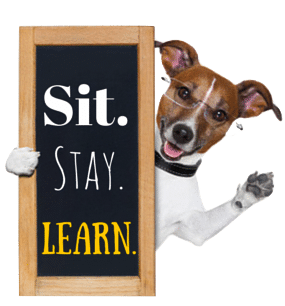
The ultimate role of being a student in this context is being willing to go deep. In other words, going beyond the superficial, the everyday stuff that we do with our dog, to go beyond that, to go deeper and get to a place of true understanding and to let our dogs lead us there.
Our dogs will lead us to have a deeper understanding of Life, (life with a capital L), you know what I mean. We only need to be open to it.
In a practical way, our dogs can teach us how to teach them… and how to train them, if we are open and willing to learn from them.
Our dogs will teach us how to be good leaders. Our dogs will teach us how to coach them if we are open to getting that from them.
What does it take to be a good student of your dog? We might not think about that when we are interacting and living with our dogs, but if we don’t, at least sometimes, put on the student hat, we are missing out on a lot of great stuff.
Juggling … it’s all about focus and balance
What happens when our many roles become imbalanced?
What if we are too much of a friend and not enough of a parent?
What if we were too much of a student not enough of a teacher?
What if we are an awesome coach but never a student, or not often a student?
Balance is always elusive and impermanent. It is a moving target, so to speak. Just simply having an awareness that we serve all these different roles in a dog’s life, can clear up some of that fog that happens when we are not aware.
I believe that by the act of contemplating this topic periodically we can find that balance and that can help us break through some challenges or some stuck places that we are having with our dogs.
Anytime we can find more clarity…our juggling becomes a thing of beauty…and it’s a joy for everyone involved!
I’d love to hear all about YOUR Super Powers!
Comment below.
Click the Banner to Download Your Free Book and get on my VIP Subscriber list for the latest tips and insights:
 Experience Success in all you do … sports, performance and every day life.
Experience Success in all you do … sports, performance and every day life.
This FREE guide will teach you 5 Core Principles that will help you:
- Identify and Solve Your Dog Training Challenges.
- Get the Performance Results You Want.
- Be a Fun, Confident, Attentive Trainer that Your Dog Adores!

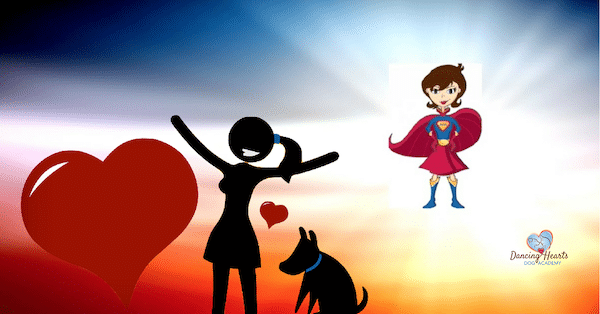


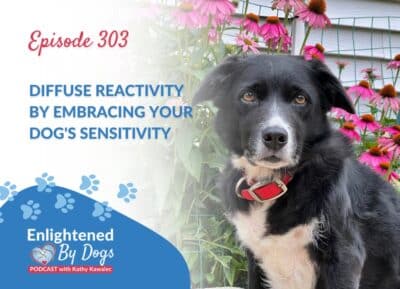
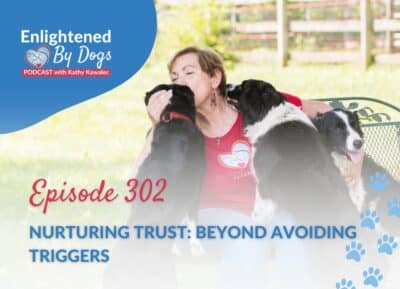
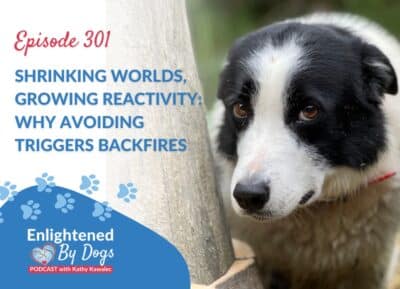

5 Responses
Hi Kathy!
Dexter is doing so much better! I believe it’s because we’ve learned how important it is to have a balance. We’ve been doing cognitive games such as hide and seek or using dog toy puzzles. He loves to learn! We’ve changed up the ways he gets exercise. In addition to walking he now LOVES frisbee! We spend more time just being with each other. Allows of this is due to your wonderful informstion!
Thanks you so much! Joni pilmaier
Thank you. I really understand your teaching methods now and information and trying to get more of my dogs in these fun classes I’m learning about. We are bonding even deeper then before and having SO much fun doing it. THANK YOU !
Brilliant article one I would like to keep and read again and again. Thankyou for sharing with us all.
Hi Kathy please send me the info but i don’t have a ebbok I’m on my mobile phone and don’t havery a computer thank you
Thank you for the info on this blog it help to understand my part of what is expected of me as a dog owners looking forward to seeing more x